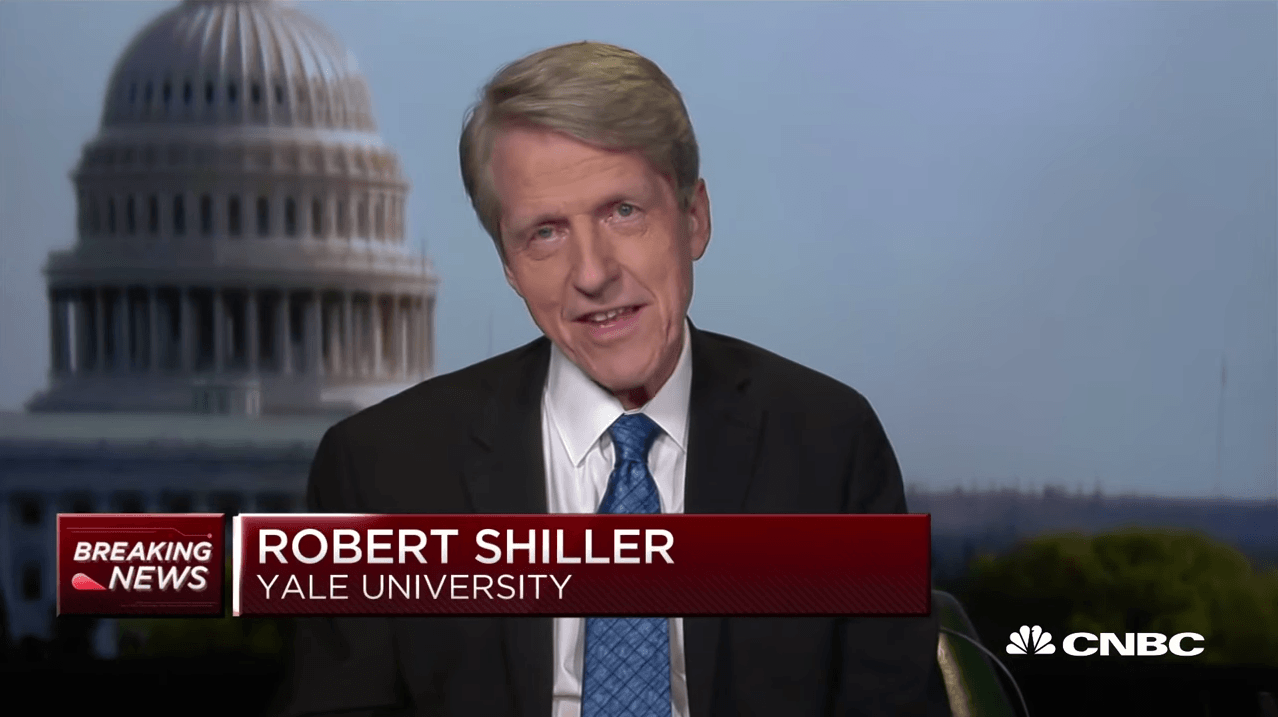Robert Shiller, Yale University Sterling professor of economics, joins “Squawk Box” to discuss his reaction to the September jobs number, which shows the U.S. added 136,000 jobs.
H/T Dataroma
September jobs number is a boost of confidence, says Yale’s Robert Shiller
Q2 hedge fund letters, conference, scoops etc
Transcript
Have you looked at the September jobs number, and before we even get into it, what's your reaction?
Well, the unemployment rate seems to me the headlines, it's a, it's kind of important booster of confidence to see that we are at such a low unemployment rate. It looks kind of hard to criticize that Trump Trump's economic success. But of course, the unemployment rate is kind of a fuzzy number, because it depends on a person's willingness to be looking for a job. And I don't know if it's entirely comfortable to 50 years ago. We have different thoughts about that now.
But I mean, it looks I mean, we've had a lot of people on the set this morning, say this is a bit of a Goldilocks September jobs number. It's a bit of a choose your own adventure situation to some degree, because you also have the wage issue, on the other end of it. How do you how do you look at how do you look at both and square them up, especially against some of the earlier numbers we heard this week?
Yeah, well, the flat wage number, this report suggests that it's not really such a strong economy. So that it yeah, it all seems like GDP growth is kind of slow. But the employment rates at a record, though, are almost a record low. So you can spin this report any way you want. I mean...
Fed
Does that mean we should just throw it out. I mean, another other numbers you you'd prefer to look at this morning?
Well, my more unique perspective is to think about predicting there will be a recession eventually, whether it's in 2020. I don't know. But there will be. And the question is, how severe will it be? And economists are not very good at going out another year. But I think that there are, this is my book. And there are narratives in place, that make ourselves a little bit vulnerable, not just the narrative that the Fed is already at a low interest rate, and doesn't have ability to expand. But there are other narratives in the background that I think could come big and powerful, notably, the narrative about machines replacing jobs, artificial intelligence, that's going so strong. You wonder why it hasn't scared consumers yet.
What does it scare consumers yet, because you're looking at a jobs number as the president just tweeted, 3.5% unemployment at 3.5%?
You got it. That's exactly it. When the September jobs number unemployment rate goes up. In the next recession, which is coming at some point, they will shift their interpretation to interpreting it as something to do with artificial intelligence, you won't be able to say they're wrong, either, because those factors are there. And so we could have a more serious reset your talk this morning seems to focus on could there be a recession, the small recession doesn't bother me as much as a big one.
Recession
And I think that we have things in place that over the next few years could worsen the recession into a bad one, maybe not as bad as the Great Recession, right. But the problem is that we have narratives of float today that are not, not strong kind of long run narratives that are in the background and waiting to affect confidence.
So when you when you said there could be a recession, but not something that looks like the recession, the great recession of 2008 what what does it look like? What are the things that worry you? What are the things that don't worry that makes it different?
Well, we still have some element of the pessimism, or the fears of that remain from from the 2008 recession. So this could be like the 3738 recession. I hate to bring the depression up. But people in that recession, that's a long time ago, that the term secular stagnation came up again, because people thought we haven't really felt good about ourselves since the Great Depression.






